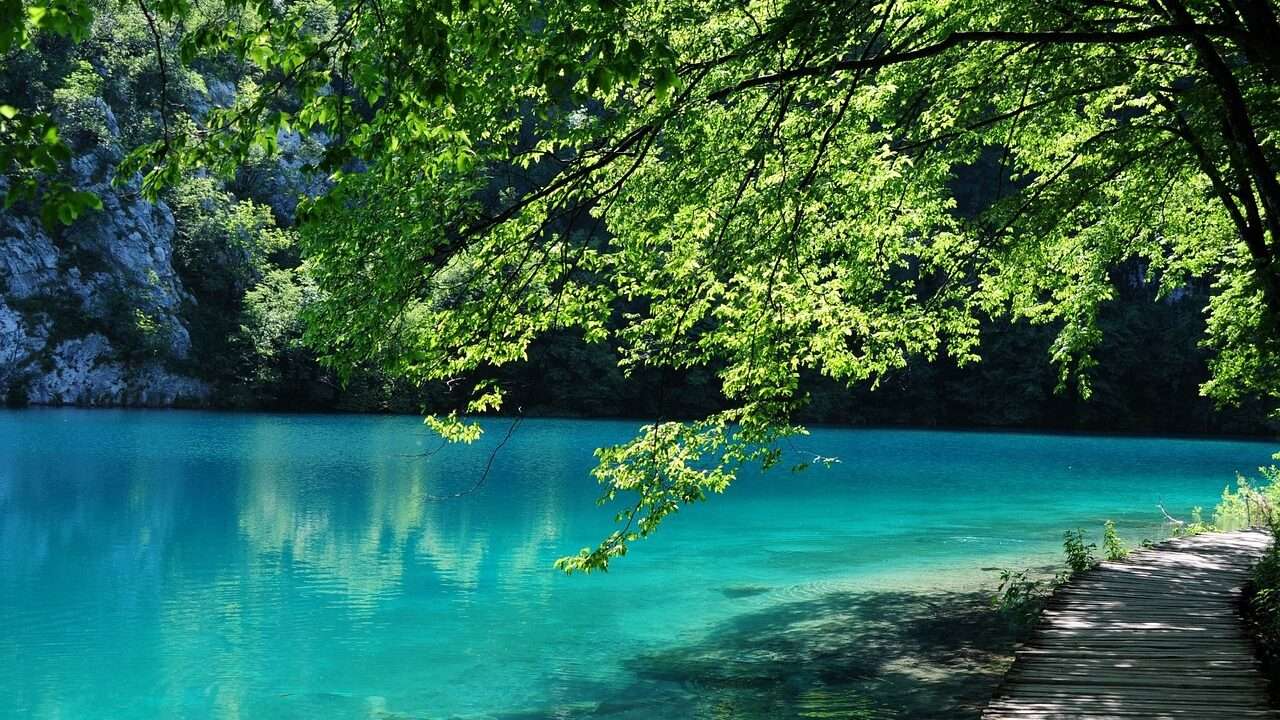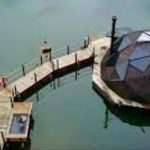
In the vast tapestry of natural wonders, few hold the same allure as lakes. These serene bodies of water, nestled amidst picturesque landscapes, have long captivated the human spirit. In this article, we embark on an exploration of the enigmatic depths of lakes, delving into their mesmerizing beauty, ecological significance, and the profound impact they have on the surrounding ecosystems. Join us as we dive into the secrets held within these shimmering expanses, where tranquility and biodiversity converge.
The Tranquil Charms of Lakes
Lakes, with their placid surfaces and pristine surroundings, are nature's tranquil retreats. They offer a respite from the hustle and bustle of everyday life, inviting us to bask in their serene ambiance. Whether nestled amidst lush forests, cradled by towering mountains, or dotting expansive plains, lakes form exquisite landscapes that mesmerize and inspire. Their glassy surfaces reflect the ever-changing sky, painting a vivid canvas of colors that dance with the sunlight. Lakes are nature's poetry in motion, enchanting all who behold their ethereal beauty.
Ecological Marvels Beneath the Surface
Beneath the tranquil facade lies a vibrant world teeming with life. Lakes serve as intricate ecosystems, supporting a multitude of organisms and playing a vital role in maintaining ecological balance. Phytoplankton, microscopic algae that harness the sun's energy through photosynthesis, form the foundation of the lake's food web. From tiny invertebrates to fish of various species, each organism contributes to the delicate harmony of life within the lake. Aquatic plants sway gently beneath the water's surface, providing shelter and sustenance for an array of creatures. The complex interactions and interdependencies of these aquatic communities make lakes hotspots of biodiversity, deserving of our admiration and protection.
Mysteries of Lake Depth and Formation
Beyond their surface beauty, lakes hold mysteries in their depths. The origin of lakes can be traced back to a variety of processes, such as glacial activity, volcanic activity, tectonic movements, or the erosion of land. Some lakes, known as tectonic or rift lakes, are formed in regions where the Earth's crust is pulled apart, creating a depression that fills with water. Others, like glacial lakes, are sculpted by the slow advance and retreat of massive glaciers, which carve out basins that later fill with meltwater. Each lake possesses a unique history, waiting to be unraveled and discovered.
5 FAQs (Frequently Asked Questions)
FAQ 1: What are the largest lakes in the world?
The world is home to several expansive lakes, each with its own distinct character and allure. Lake Superior, the largest of the Great Lakes of North America, spans vast horizons and holds a tremendous volume of freshwater. Lake Baikal in Siberia, known for its astonishing depth and crystal-clear waters, is the deepest lake on Earth. Other notable giants include Lake Victoria in Africa, the largest tropical lake, and the Great Slave Lake in Canada, a haven of pristine wilderness. These vast bodies of water captivate our imagination and offer endless opportunities for exploration and appreciation.
FAQ 2: Do lakes have any economic significance?
Lakes hold immense economic importance for local communities and regions. They provide valuable resources, such as freshwater for drinking, irrigation, and industrial use. Lakes also support thriving fisheries, offering sustenance and livelihoods to countless communities. Additionally, lakes serve as popular tourist destinations, attracting visitors who seek solace in their natural beauty and engage in various recreational activities, such as boating, fishing, and swimming. The economic value of lakes extends far beyond their tranquil shores, making them integral to both local economies and global ecosystems.
FAQ 3: How do lakes contribute to the water cycle?
Lakes play a crucial role in the Earth's water cycle, influencing the distribution and availability of freshwater. They act as reservoirs, storing water during times of excess rainfall and releasing it gradually during drier periods. Lakes also contribute to the replenishment of groundwater, as water seeps through the lakebed and recharges underground aquifers. Moreover, the evaporation of water from lakes fuels the formation of clouds and subsequent precipitation, completing the cycle and ensuring the continuous flow of water on our planet.
FAQ 4: Can lakes be found in diverse climates?
Lakes are not confined to specific climates or regions; they exist in a diverse array of environments around the world. From the frozen landscapes of the Arctic to the lush tropics and arid deserts, lakes thrive in various climatic conditions. In colder regions, lakes may freeze over during the winter, transforming into icy expanses that shimmer under the pale sunlight. In contrast, lakes in tropical regions are vibrant havens of life, teeming with colorful fish, aquatic plants, and exotic wildlife. The adaptability and resilience of lakes make them an integral part of diverse ecosystems worldwide.
FAQ 5: How can we protect and preserve lakes?
Preserving the pristine beauty and ecological integrity of lakes is essential for future generations. Conservation efforts must focus on reducing pollution, preventing the introduction of invasive species, and managing the sustainable use of water resources. Supporting initiatives that promote responsible tourism and educating communities about the importance of lake ecosystems can also contribute to their long-term protection. By fostering a collective sense of stewardship and taking proactive measures, we can ensure the survival and thriving of these irreplaceable natural treasures.
Conclusion
As we conclude our journey through the mesmerizing realm of lakes, we are left awestruck by their ethereal beauty, ecological significance, and profound impact on our planet. From the tranquility they offer to the intricate ecosystems they harbor, lakes stand as testament to the incredible forces of nature. Let us embrace our role as custodians of these precious water bodies, cherishing their enchanting allure and safeguarding them for generations to come. Through our collective efforts, we can preserve the mystique and splendor of lakes, ensuring that their timeless charm continues to captivate and inspire.











